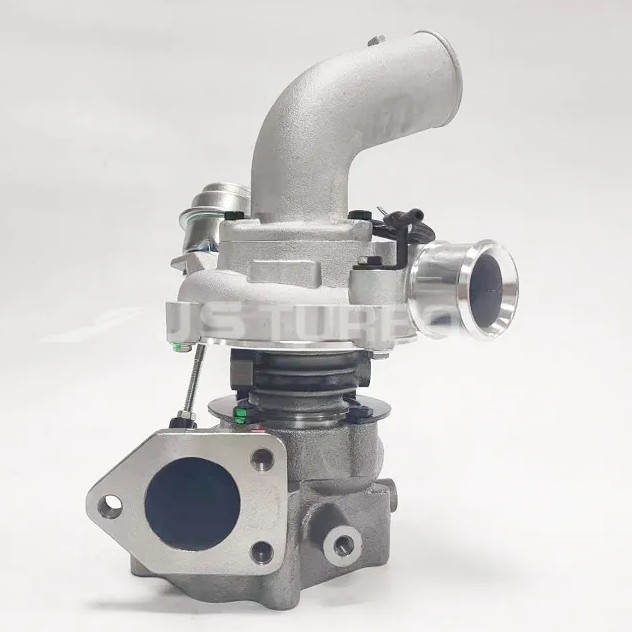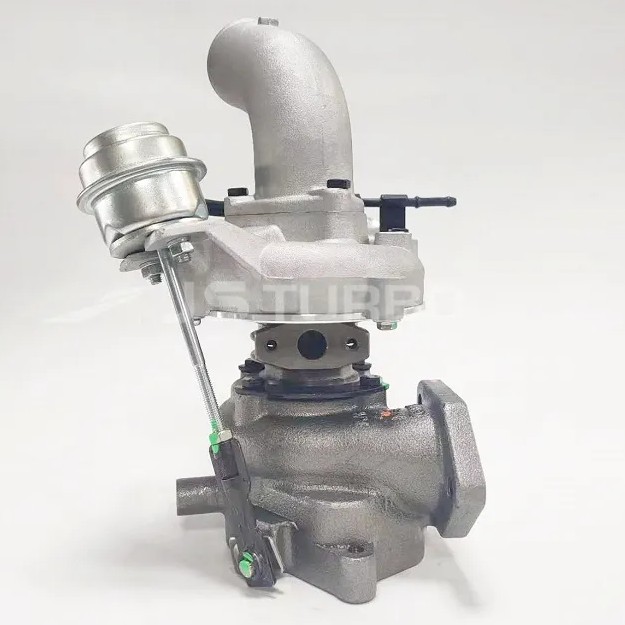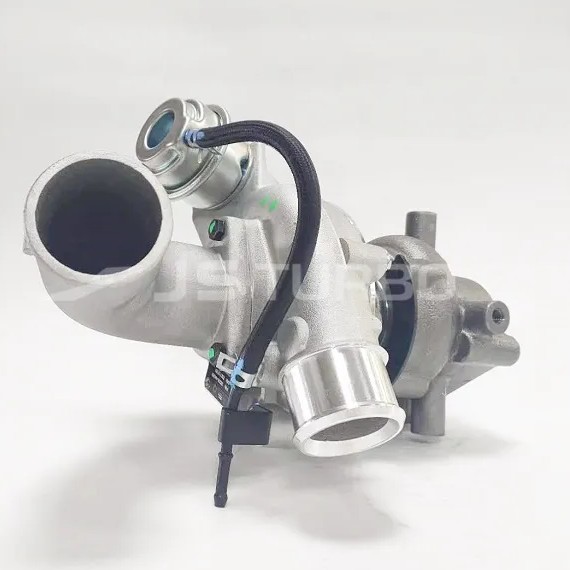
Turbocharger knowledge sharing
2023-02-13 12:10Turbocharging is a technology that uses the exhaust gas generated by the operation of internal combustion engine to drive the air compressor. The turbocharger is actually an air compressor, which increases the intake volume by compressing the intake volume. The turbocharger uses the inertia momentum of exhaust gas from the engine to drive the turbine in the turbine chamber, and the turbine drives the coaxial impeller. The impeller presses the air from the air filter pipe into the cylinder. When the engine speed increases, the exhaust emission speed and the turbine speed also increase synchronously. The impeller compresses more air into the cylinder. The increase of air pressure and density can burn more fuel, and correspondingly increase the fuel quantity and adjust the engine speed to increase the output power of the engine.
The current turbocharging system is not easy to be damaged. As long as it is not intentionally damaged, its service life is similar to that of the engine under normal conditions. The engine will not cause damage to the turbine system. The vulnerable part of the turbocharger is its bearing part, which can be said to be the precise part of the whole turbine system, with a precision of only a few microns. So the bearing of the turbocharger is afraid of being worn by hard objects, so if there are too many impurities in the engine operating environment, it is easy to cause turbine damage.
The lubrication of the turbocharging system is maintained by oil, and the amount of impurities in the oil will become the key factor affecting the life of the turbocharging system; No matter how careful, there will be coking problems. Although the delayed cooling system can alleviate this problem, there is still a small amount of coking, and the accumulation of time is enough to affect the health of the turbine; Coking is that the oil is vaporized at high temperature when cooling the supercharger. The coking itself is not terrible, but the terrible thing is that once the oil evaporates, the impurities (minerals) and metal additives in the oil will be burned into small particles, and these small particles are easy to cause damage to the turbine bearing, so limiting the impurities in the engine oil and fuel is good for the turbocharging system.
Most turbocharged engines are more suitable for low ash oil, which will be clearly indicated in the vehicle manual; Putty can be simply understood as a metal additive added to the oil to make it oil resistant. The titanium liquid, magnetic protection and other grinding and cleaning functions in ordinary oil belong to metal additives. These metal additives will form metal salt and metal compound particles after normal combustion of oil. Like the mineral combustion particles in the oil, these metal particles also have extremely high hardness and will also cause wear to the turbine bearing. Therefore, the ash content determines how many residual metal particles are left in the oil combustion. Therefore, mineral oil is not recommended for turbocharged engines. This is not only about viscosity, but also about impurities contained in the oil itself; Mineral oil is too natural, so it contains many natural mineral substances. The combustion of these minerals will cause great damage to the turbine. Similarly, the ash content of engine oil should not be high, otherwise it will lead to more technical particles after combustion.



